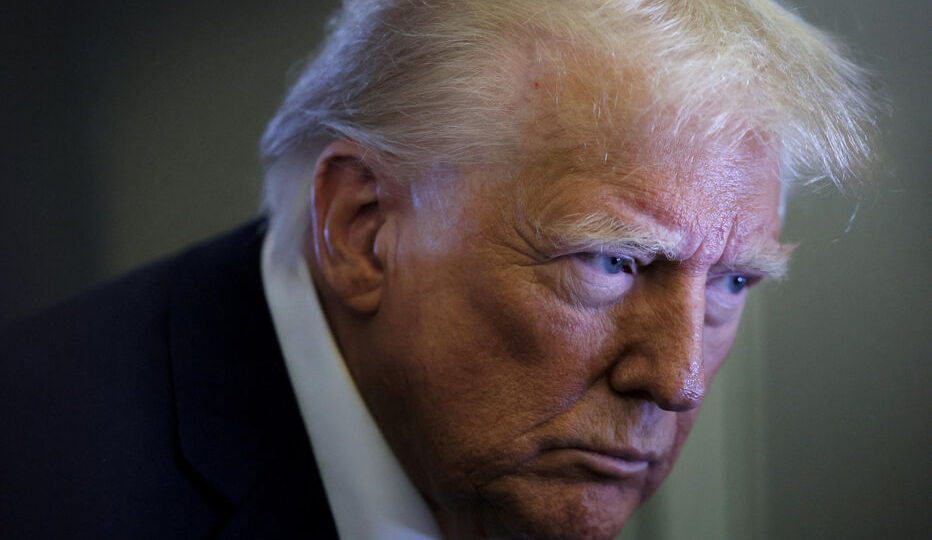Freshly re-elected President of the United States, Donald Trump has made a series of controversial statements. Alongside his key ally, Elon Musk, he openly discussed the idea of a possible annexation of neighboring countries. A simple provocation or a calculated strategy? Uncertainty remains.

Great ambitions
The ambitions of the most prominent duo on the planet have recently turned to their northern neighbours, Canada. The new American president recently highlighted the positive contribution that an annexation of Canada by the United States would represent. Donald Trump claims that the abolition of the borders between these two countries would initially give Canadians better social security coverage, but also greater purchasing power. The main argument of the new American president, however, is linked to US military spending. An annexation of Canada would allow the United States to limit its spending on border protection. Donald Trump claims that Canadians depend on this defence without paying for it and demands financial compensation.
The president's right-hand man, Elon Musk, had recently attacked the resigning Canadian Prime Minister Justin Trudeau. Justin Trudeau had responded to the provocations of the American president, who had claimed that many Canadians wanted to become the 51st state of the United States, by declaring: "There is no way Canada will ever be part of the United States. Workers and communities in both our countries benefit from being each other's largest trading partner and largest security partner."

Elon Musk then responded on X: “My daughter, you are no longer governor of Canada, so what you say is of no importance.” A tweet which, as is often the case with the American billionaire, caused controversy.
Donald Trump is also very interested in Greenland, which is part of Denmark. Donald Trump sees Greenland as an extremely interesting territory from an economic point of view. Greenland is rich in natural resources, including rare minerals, oil and gas. Control of these resources would thus considerably reduce the United States' dependence on their acquisition from other countries.
US control of Greenland would also allow the Americans to strengthen their presence in the Arctic. The melting of the ice has allowed the creation of new shipping routes connecting the American continent to Europe, thus facilitating trade relations between the two continents. An American Greenland would give the United States direct access to these routes.
The United States would also increase its military presence in the region, as it already has an air base in Pituffik, in northwestern Greenland. This is also not the first time that the United States has expressed interest in Greenland. The United States previously made an offer to Denmark in 1946 under Truman and in 2019, during Donald Trump's first term.

The latest symbol of this desire for expansionism by the United States targets Mexico. For the same reasons as Canada, Donald Trump declared last December that the United States was subsidizing Mexico without compensation. He declared: "All I want is to establish a level playing field quickly. We should not subsidize them. If we have to, they should just become a state."
Trump also made the decision to rename the Gulf of Mexico the "American Gulf", which also sparked controversy.
Contested ambitions:
As mentioned earlier, the resigning Canadian Prime Minister, Justin Trudeau, strongly criticized the American expansionist will. He is not the only one to have denounced Donald Trump's remarks. The Minister of Foreign Affairs, Mélanie Joly, also criticized the American president's statements, calling them "threats" undermining the bilateral relationship, before adding that Canada would not back down in the face of this pressure.

Canada's opposition leader said Canada could never become the 51st American state, stressing that the country remains the United States' most loyal ally. He particularly recalled the memory of the hundreds of Canadians who died in service to the United States after the attacks of September 11, 2001.
However, a recent poll by Ipsos, conducted from January 9 to 13, 2025, reveals that 43% of Canadians aged 18 to 34 would be in favor of Canada's annexation to the United States.
On the Greenland side, Denmark, through its Prime Minister, Mette Frederiksen, reaffirmed that Greenland was not for sale and that its future would be decided by the Greenlanders. The latter also had a telephone conversation described as tense with Donald Trump a few days ago. The Danish Prime Minister then expressed concern about possible economic sanctions if Denmark refused to discuss the sale of the territory.

Denmark can nevertheless count on the support of European countries against the United States. French government spokeswoman Sophie Primas denounced Trump's statements, calling them a "form of imperialism." France, through its Foreign Minister Jean-Noël Barrot, recalled that Greenland was part of the European Union and that Paris would not hesitate to respond to an appeal from Denmark, including by considering sending troops to defend the territory.
Other European powers, such as Germany and Sweden, have also lent their support to Denmark. European Council President Antonio Costa has also vetoed a potential annexation of Greenland, reiterating that the European Union firmly supports the territorial integrity of its member states and will not tolerate any attempt to undermine their borders.
Mexico also responded to the threats from the U.S. government. Its president, Claudia Sheinbaum, reaffirmed national sovereignty, declaring: "We will never subordinate ourselves." The Mexican Congress, for its part, called for national unity in the face of these statements.
Regarding the change of the name of the Gulf of Mexico to "American Gulf," the Mexican president ironically suggested that Mexico should rename the United States to "Mexican America."

But are these ambitions achievable?
Despite Donald Trump's claims, an annexation of its neighboring countries is very unlikely to come to fruition. Canada and Mexico are now two major powers in the Western world and have no interest in becoming vassal states of the United States. In addition, the local populations are, in their great majority, opposed to a possible union with the United States.
In Greenland, the situation is a little different. In 2009, the island was granted broad autonomy, including the right to declare independence from Denmark through a referendum.
In 2019, both Danes and Greenlanders opposed a sale of Greenland to the United States. To this day, however, Greenlanders would not be opposed to a referendum on independence. Although a vassal of Denmark, Greenland does not have a very healthy relationship with Copenhagen. Greenlanders have not forgotten the mistreatment inflicted by Denmark during the colonial era. A majority of Greenlanders are now in favor of the island's independence. However, many still question the timing of independence and the economic consequences it could have on local trade.
However, although Greenlanders said in 2019 that they were open to strengthening their trade relations with the United States, Greenlandic Prime Minister Mute Egede reiterated that the island was not for sale and that its future would be decided by its people.

So why does Trump insist?
It should not be forgotten that many of Donald Trump's statements were made during his last presidential campaign. Trump played on his extravagance, which appeals so much to Americans, to win the race for the White House. His statements allowed him to convince his electorate that he was the man who would put the United States back on the right path.
These remarks, which he has maintained even after his return to the White House, are also a way of showing that he is back and that he is not afraid of anything. His rhetoric is simple: he wants to demonstrate that the world dreams of being American and plays on the minority voices in favor of its annexations to make himself heard. The long-term objective is to affirm that the United States will not back down in the face of any adversity, especially in the face of Chinese ambitions.

However, this strategy is risky, because it could isolate the United States. The country is alienating some of its most loyal allies, such as Canada, France, and the rest of the European Union. In addition, the United States has never been unanimous on the international stage, and with this approach, hostility towards it could increase.
This strategy is also reflected in Elon Musk's international positions. He seems to have acquired a taste for politics and no longer hesitates to speak out on the affairs of other countries, as recently in the United Kingdom or in Germany, where he attended a far-right AfD rally. German Chancellor Olaf Scholz strongly condemned Musk's support for the AfD, calling his actions "really disgusting" and harmful to democracy within the European Union.

Musk also spoke out about the arrest of the owner of social network Telegram in France, saying: "I may have to restrict my travel to nations where freedom of speech is constitutionally protected."
This interference by Musk in the affairs of other countries would upset several governments, particularly among the allies of the United States.
Donald Trump is therefore not hiding his expansionist ambitions, supported by his most loyal ally, Musk. Above all, he is seeking to show that he is back, and with him, the power of the United States. However, his statements on the annexation of neighboring countries are for the moment nothing more than provocation. He also no longer hesitates to interfere in the policies of his allies, which, in the long term, could cause him harm. The question therefore remains open: will Donald Trump and Elon Musk come up against the limits of today's world or will they succeed in pushing them back?

RELATED POSTS
View all




